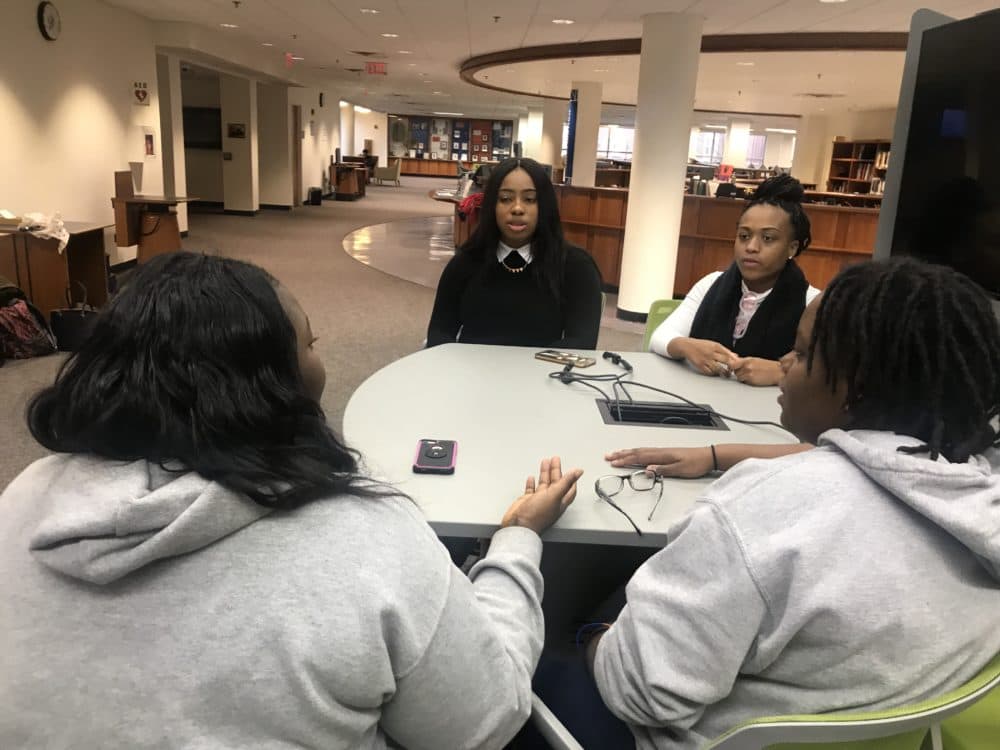Advertisement
After Blackface Controversies In Virginia State Government, Activists Dig Into More Yearbooks
Resume
After Virginia Governor Ralph Northam and Attorney General Mark Herring admitted to appearing in blackface in the 1980s, a group of local activists had an idea: pay Richmond-area students from historically black colleges and universities to dig into other politicians’ yearbooks.
A few weeks ago, Virginia State University political science professor Dr. Wes Bellamy sent out a group text message to some of his students asking if they’d be interested in a special research fellowship.
“I ran it by them. Hey, any of you all interested in doing this project? And they said, yeah, Dr B., we’d love to do so,” Bellamy said.
As part of the project, students from Virginia State and Virginia Union University will look into yearbooks from a variety of local universities to see what they can find out about politicians who went to school in Virginia.
19-year-old sophomore Ja’Neese Jefferson isn’t new to politics. She grew up going to school board meetings with her mother, in her hometown of Manassas Park, Virginia. But, she’s excited to hone her research skills.
“Just going beyond the surface,” Jefferson said. “Going beyond Google, you know what I'm saying? Like you know, using databases and scholarly articles and stuff. Instead of just, you know, Wikipedia.”
Chelsea Higgs Wise, a local activist, came up with the idea for the fellowship. She’s a member of the Metro Richmond Area Young Democrats, and volunteered to campaign for Virginia Governor Ralph Northam in 2017.
“I started noticing throughout the campaign that he wasn’t very comfortable talking about African Americans or people of color,” Wise said.
That bothered her. And she feels like now’s the time to hold Northam and other politicians accountable. She wondered what would their yearbooks have to say about them? And, she thought, who better to look than students from historically black universities?
“This is about providing resources to students of color to learn different skills of research and archiving as well as to pay them for having to live through and survive the type of images that they're going to be seeing,” Wise said. “That's traumatizing to see that.”
Another important part of the fellowship — Wise says — will be about helping students decompress and discuss the images they’re seeing, and the history from painful, racist chapters of Richmond’s past. Wise works with a non-profit that leads these kinds of discussions, called Initiatives of Change.
A number of area universities have also signed on to help. Irina Rogova is an archivist with the University of Richmond. She’ll teach students research tips, things like how to “tag” topics, so they’re searchable.
“How I explain it to students sometimes ... I'm like, it's like a Hashtag,” Rogova said. “You want to collect things.”
She’s already doing that now, with the college’s race and racism project, which helps catalyze conversations about the school’s history.
“There were definitely instances of the raising of the Confederate flag,” Rogova said. “There was something called the Old South Ball that would be put on and the men would come in Confederate uniforms. We have the Confederate spider mascot as well.”
Students realize they may not like what they find out. 17-year-old freshman Mychala Walker interned this year with Virginia Senator Jeremy McPike. She said she’s hesitant to dig into his yearbook.
“I don't know about that,” Walker said. “I like my job, so I don't know about that.”
The students at Virginia State will work with another group of students from Virginia Union University, another local historically black school. After they wrap up their work over the summer, they’ll share it with local high school students, and local reporters.
They also hope their research will spark an interest in lawmakers. 21-year-old junior Daeisha Smith recently interned for state Senator Rosalyn Dance. “What I really hope is for legislators to hear our voice and want to take the initiative to change the policy,” Smith said.
This segment aired on March 22, 2019.